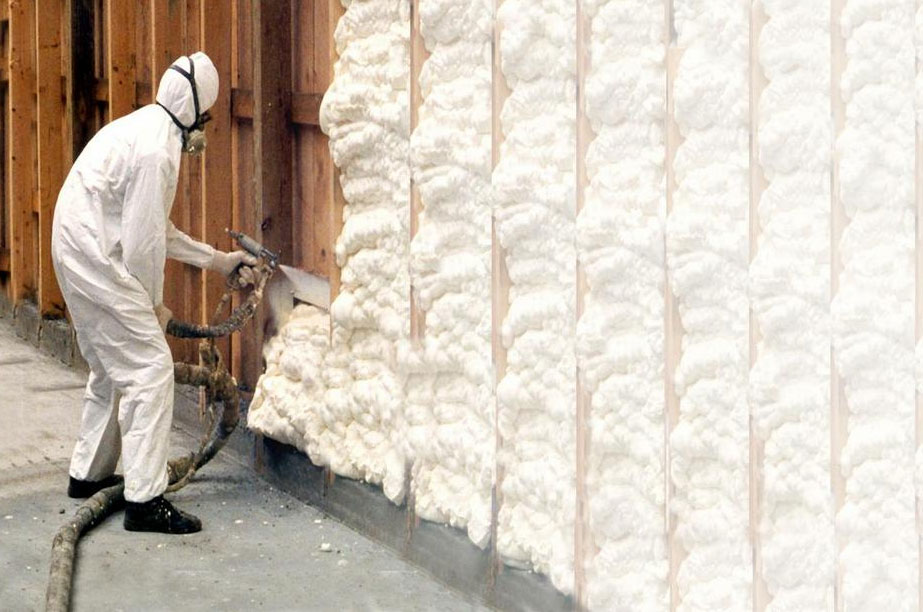If you’ve been considering SPF Insulation for your home, here are some tips to help you decide which contractor is right for your needs. As a liquid, SPF expands into foam, reducing airborne noise and moisture infiltration. The contractors installing SPF will also arrange for debris removal. Ask them if this is included in their contract. If not, you may need to find another company. However, the benefits of SPF Insulation are worth every penny!
SPF Insulation Is A Liquid
SPF insulation is a synthetic material that is made by mixing two different chemicals in a compressed form and then spraying it onto the surface. Once it is exposed to air, it expands like foam. This type of insulation is designed to help contractors reduce energy costs by providing a barrier against moisture and air infiltration. A team of professional agents will apply this insulation to a building using two or three passes. Each pass is applied at a depth of half an inch to three inches. A spray gun is used for the process, providing a complete mix of the two chemicals. Application of SPF will require cooling time of 10 to 15 minutes per inch of thickness.
Professional SPF installers should follow proper safety practices, including wearing personal protective equipment to prevent contact with the chemical compound. Once the SPF has been applied, the contractor will need to limit access to the building. During the application, people and pets must be kept outside the home for a certain period of time. This time varies based on the manufacturer’s recommendations, as temperature, humidity levels and SPF formula all play a role. After the SPF application is complete, the SPF contractor will clean the work area and ensure that there are no chemical residues.
It Expands Into Foam
SPF insulation is unique among building materials. It is made by reacting two chemicals and expanding foam quickly to form a rigid product. SPF consists of various chemical components, including polymeric methylene diphenyl diisocyanate (MePDI), blowing agents, flame retardants, and surfactants. Professional installers use open-cell SPF insulation and wear personal protective equipment.
Generally, low-density SPF is used for homes and buildings and has comparable R-values to board stock products. When applying SPF, contractors should avoid wires and electrical outlets. The spray foam must cool completely before it can be applied. The cooling time is ten to fifteen minutes for every inch of foam thickness, which translates into thirty to forty-five minutes for a three-inch-thick SPF. The contractor should not apply SPF that is thicker than three inches in a single pass.
It Reduces Airborne Sound
A spray foam insulation contractor can help to reduce airborne sound transfer by utilizing various methods to insulate your home. The mechanical transfer of sound through a building structure is a large portion of airborne sound. In order to effectively dampen sound, proper building design must be addressed. An experienced company will test the air seal to determine how effective the foam insulation is. Ultimately, this process will reduce airborne sound.
There are a number of techniques to reduce airborne sound, including treating surfaces and acoustic absorption. Acoustic absorption works by reducing the amount of sound that is reflected back into the air. Sound insulation uses a similar technique, blocking sound before it can travel from the source to adjacent rooms. By reducing the amount of sound that enters the building, you can enjoy peaceful, quiet living.
It Reduces Moisture Infiltration
Using SPF insulation in a home will reduce the amount of moisture infiltration and lower the utility bills in the long run. Infiltration of air into a building can increase the energy bills by 10 to 40%. It can also cause serious health issues for occupants. Not only does SPF save occupants money on energy bills, but it can also reduce the load on HVAC systems, which means they will need less power to keep the home comfortable.
To effectively minimize the risk of air leakage, SPF insulation fills gaps in walls and ceilings, preventing the transfer of heat and moisture. Its superior air sealing properties can reduce the risk of mold and structural damage. However, this material is not suitable for all types of homes. Professional insulators recommend closed-cell spray foam for their homes. These materials are highly effective in reducing moisture infiltration.
It Improves Energy Efficiency
When deciding how to insulate a building, consider SPF Insulation. This type of insulation is ideal for attics and perimeter walls, and according to a survey conducted by the American Chemistry Council, more than 50% of all builders now use SPF to insulate these areas. By sealing gaps and air leaks in walls and roofs, SPF Insulation contractors can help boost building energy efficiency and reduce greenhouse gas emissions.
SPF insulation is an efficient, cost-effective way to seal buildings. It prevents air from leaking out, allowing for constant indoor air quality. Typical SPF insulation is 25 mm (1 inch) thick. SPF also reduces the load on HVAC systems. In addition to improving energy efficiency, SPF insulation can also reduce construction costs. Since it seals the building envelope, SPF Insulation contractors can use less air sealing materials than would be necessary to meet local building energy codes.
It Requires A Building Permit
Building codes are specific to commercial structures, and the use of SPF insulation can make a difference in the economics of a property. In addition to the costs of operating a commercial property, many other factors affect a structure’s viability, including heavy retail usage, turnover in occupants, and liability issues related to structural integrity. In addition to protecting the structure’s value, a well-built structure will have fewer maintenance costs and last longer.
Installing SPF can save money by reducing the number of trades required for a building’s construction. Because SPF can act as a thermal and air barrier, fewer trades are needed to finish a SPF project. Nevertheless, it is difficult to find qualified subcontractors, and it may take time to schedule the preferred trades. Building permits can delay the completion of a project.





